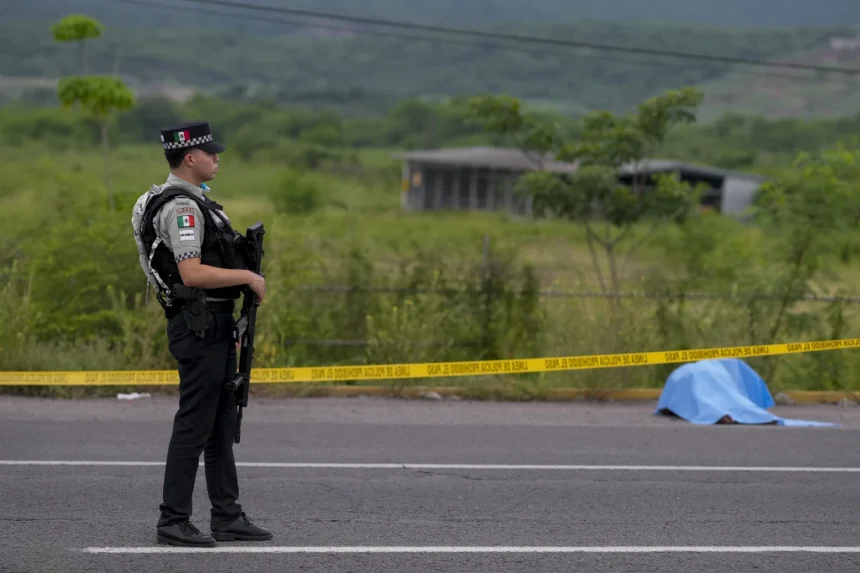In a significant move, the United States has officially added six Mexican cartels to its list of foreign terrorist organizations (FTOs), escalating efforts to combat the drug trafficking that fuels the opioid crisis in the US. Among the cartels named are Mexico’s largest organized crime groups—the Jalisco New Generation Cartel (CJNG) and the Sinaloa Cartel—as well as the Tren de Aragua and Mara Salvatrucha, two groups with ties to Venezuela and El Salvador.
The new designation, which took effect on Thursday, has drawn attention to the growing threat posed by these criminal organizations. The US government is calling for the “total elimination” of these groups, which have been involved in trafficking drugs, including fentanyl, across the US-Mexico border.
While it remains unclear how the new classification will impact the ability of US agencies to directly target these criminal groups, the designation broadens the scope of individuals who could face charges for supporting them. It is feared that this could pave the way for more aggressive actions, potentially including US military operations within Mexican territory.
The decision to label the cartels as foreign terrorist organizations is seen as a key part of former President Donald Trump’s strategy to “wage war” on Mexico’s organized crime, which he claims is directly linked to the fentanyl epidemic ravaging the United States. Trump has argued that addressing the cartels’ operations is critical to curbing the flow of illegal drugs, particularly fentanyl, into the US.
The move also signals a shift in how these criminal organizations are viewed by US agencies, possibly signaling a more active role for the CIA and the military in combating the cartels. Trump’s pick for the new US ambassador to Mexico, Ron Johnson, who served as the US ambassador to El Salvador from 2019 to 2021 and has a background in the CIA and US Army, further underscores the growing focus on Mexico’s criminal groups.
However, the true impact of the designation remains uncertain. US agencies already have a range of tools at their disposal to combat transnational organized crime, including restrictions on cartel members’ travel and financial activities. Since Trump’s return to power, there has been a marked increase in military surveillance of cartel activities along the US-Mexico border, with the CIA conducting drone flights over Mexico to locate fentanyl labs. Mexican President Sheinbaum has stated that this increased surveillance is being carried out with the consent of the Mexican government.
Despite the ongoing efforts, critics argue that the designation of Mexican cartels as foreign terrorist organizations could have far-reaching consequences, potentially escalating tensions between the US and Mexico, and raising concerns about the potential for military intervention. As the situation evolves, both countries will be watching closely to see how the new designation influences the ongoing battle against transnational drug trafficking.




